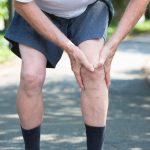Menopause is a time in our lives that most women are primed to prepare for. With the average Australian female hitting menopause at 51, most of us know that this “change” marks the end of ovulation and the reproductive phase of a woman’s journey in life. Menopause is a natural fact of life and for many of us this chapter represents nearly a third of our time on this planet which is a long time. In my opinion for this reason, menopause should be embraced not feared.
But what about the “change before the change”? By this, I am talking about Perimenopause which most often strikes women in their 40’s and sometimes late 30’s. On average it lasts four to six years and for some lucky women it can be as short as one year. For those unlucky amongst us it can take more than 10 years to conclude.
So much less is known about Perimenopause. As a Naturopathic practitioner and self-confessed warrior for women’s health education, I am doing my part to help women understand what is going on for them. This is because it really can be a very challenging time of emotional and physical up and downs for a large percentage of women. I should state here that there are some women who breeze through this “change before the change” and will only notice a few manageable symptoms before their period bids them farewell.
What is the Difference Between Menopause and Perimenopause?
Most women in their 40’s that seek my support believe that menopause is the big event for female hormone changes. Distressed with unexplained symptoms, they often hold the belief that menopause and all the hideous symptoms they have heard about actually strike in their 50’s…… They couldn’t be more wrong.
Menopause is claimed like a stake in the ground when you have not had a period for 12 months. The average age as stated earlier is 51. On this momentous occasion, you can scientifically call yourself a menopausal woman. It is fundamentally a time of low estrogen. You will be happy to know that many women feel great in menopause as hormone levels stabilize with many feeling the best they have felt in years.
The truth is that reaching menopause is often a huge relief for the many women who have travelled through what can end up being a decade or more of perimenopause.
Most women start perimenopause in their 40’s, not their 50’s. “You have got be kidding!”, is a comment I hear time and time again from my busy 40 something female patients as I explain what is happening to them. Many blame the stress in their lives for the symptoms that plague them when it is actually a result of see sawing female hormones.
Unlike menopause where estrogen is low, during perimenopause the ovaries wind down and estrogen goes up and down like a roller-coaster, fluctuating with high peaks and then crashing to crazy lows with progesterone on a gradual decline. Sadly, there is no nice gradual reduction of estrogen. Whilst you can still have regular cycles, as time goes on some months you will ovulate (release an egg) and some months you won’t. Sometimes you may even ovulate twice in the one cycle. It is chaotic to say the least and a “rollercoaster” of hormone fluctuations.

When Will I Start to Notice the Signs of Perimenopause?
As luck would have it, this hormonal rollercoaster often strikes when women are juggling more than ever before. Women in their 40’s are in high demand with stress in their lives often at a peak as they prioritise demanding families, career commitments, financial expectations, aging parents and the list goes on. What makes matters worse is that stress worsens symptoms.
So, perimenopause truly is an inconvenience. Internationally recognised Canadian endocrinologist Dr Jerilynn Prior reports that 3 or more of these symptoms could mean perimenopause is very likely upon you:
- Heavier periods & longer bleeding
- Mood swings, feeling irritated
- Headaches
- More painful or swollen breasts
- Waking up at night & night sweats
- Gaining weight without diet or lifestyle changes
Other commons symptoms at this time may include itchy and dry skin, exhaustion, much worse PMS, loss of sex drive, difficulty concentrating, feeling more teary than usual, worsened allergies & nasal congestion and finding it more difficult to cope as well with the stress of everyday life.
Can Following a Healthy Eating Plan Ease Perimenopause Symptoms?
As you can tell, this time of life is not fun however it does provide relief for many of my female patients when they finally realise the Perimenopause symptoms they are feeling are due to a very genuine medical reason.
So, what is the answer? Firstly, it’s important to realise that Perimenopause is a natural transition and each woman is unique. The Western world we live in impacts each woman differently based on her diet, lifestyle and stress levels and can either worsen or improve symptoms.
For this reason, easing your symptoms always requires a focus on a Perimenopause diet, lifestyle and managing current stress levels whilst supporting progesterone and estrogen and reducing any inflammation.

How Can I Balance My Hormones During Perimenopause?
Here are some important treatment strategies to get you started in balancing your hormones during perimenopause:
1. Scale down the stress in your day to day life: No herbs or supplements can fix this part of the problem. Self-care must come from you at this vulnerable time. From a biochemistry point of view whilst progesterone and estrogen levels decline from your ovaries, your adrenal glands are required to contribute these hormones. Stress hijacks this as the production of your stress hormone cortisol is the priority in your body over progesterone and estrogen. At this stage of life, you really want to maximise your female hormones so finding effective ways to reduce stress is important. Look at cutting back work hours, sharing more of the housework, booking in a massage, leaving the house on your own to go for a walk. Create a space for time on your own at least 2 hours a week.
2. Implement a sleep routine: Interrupted sleep impacts cortisol levels and again will hijack your female hormone levels negatively. To nurture your female hormones, doing everything you can to sleep through the night is important. Preparing for bed ideally should exclude work and tasks that keep the mind alert. Ear plugs, layers and a cool room are all effective. For other suggestions for having a better night’s sleep, read our blog here.
3. Include moderate exercise: This is not a time to overdo it with extreme exercise when you have no energy. Its best to keep exercise moderate and on days when you are tired, try a gentle walk in the sun instead. Any form of stress on the body may hijack your hormones and worsen your symptoms.
4. Reduce your alcohol intake and don’t drink too late: Unfortunately, alcohol increases your exposure to estrogen by reducing your livers ability to detoxify it. On top of that, alcohol can cause hypoglycaemia at night and add to disrupted sleep.

5. Put the brakes on too much caffeine: Coffee triggers the “fight or flight” hormone cortisol and this can interfere with female hormones. One coffee a day before lunch is my common recommendation as any later may negatively impact the sleep you need.
6. Eat to nourish digestion & your gut microflora: Healthy digestion is critical for balanced estrogen levels with intestinal bacteria involved in detoxifying estrogen from the body. Food intolerances, constipation and an unhealthy diet give rise to bacterial species that lead to the re-absorption of these estrogens. Eat more plant-based food as it helps with estrogen clearance which is very important. Learn more about gut health here.
7. Reduce hot flush triggers Such as alcohol, high sugar foods and too much caffeine.
8. Check your thyroid levels: Low thyroid function is common as female hormones change. Low thyroid symptoms can mimic or worsen perimenopause symptoms.
In addition to guiding women effectively with powerful lifestyle changes, supplements and herbal medicines are often used to help alleviate symptoms and cope with stress at this challenging time. My favourites include a good quality magnesium and Vitamin B6, prebiotic and probiotic formulations and some beautiful herbs such as Ashwaganda, Vitex agnus-castus and Salvia officinalis. Remember that each woman has a different set of circumstances so one size does not fit all.
If you do require some support in perimenopause, please reach out for a personalised consultation here.
References
Briden, L. (2018). Period Repair Manual. Sydney, NSW: Pan Macmillan Australia Pty Ltd
Hechtmann, L. (2014). Clinical Naturopathic Medicine. Chatswood: Elsevier Australia
Prior, J. (2005). Estrogen’s storm season: stories of perimenopause. Vancouver, Canada: Centre for Menstrual Cycle and Ovulation Research
Trickey, R. (2003). Women, Hormones and the Menstrual Cycle. Melbourne, VIC, Australia: Trickey Enterprises (Victoria) Pty Ltd










